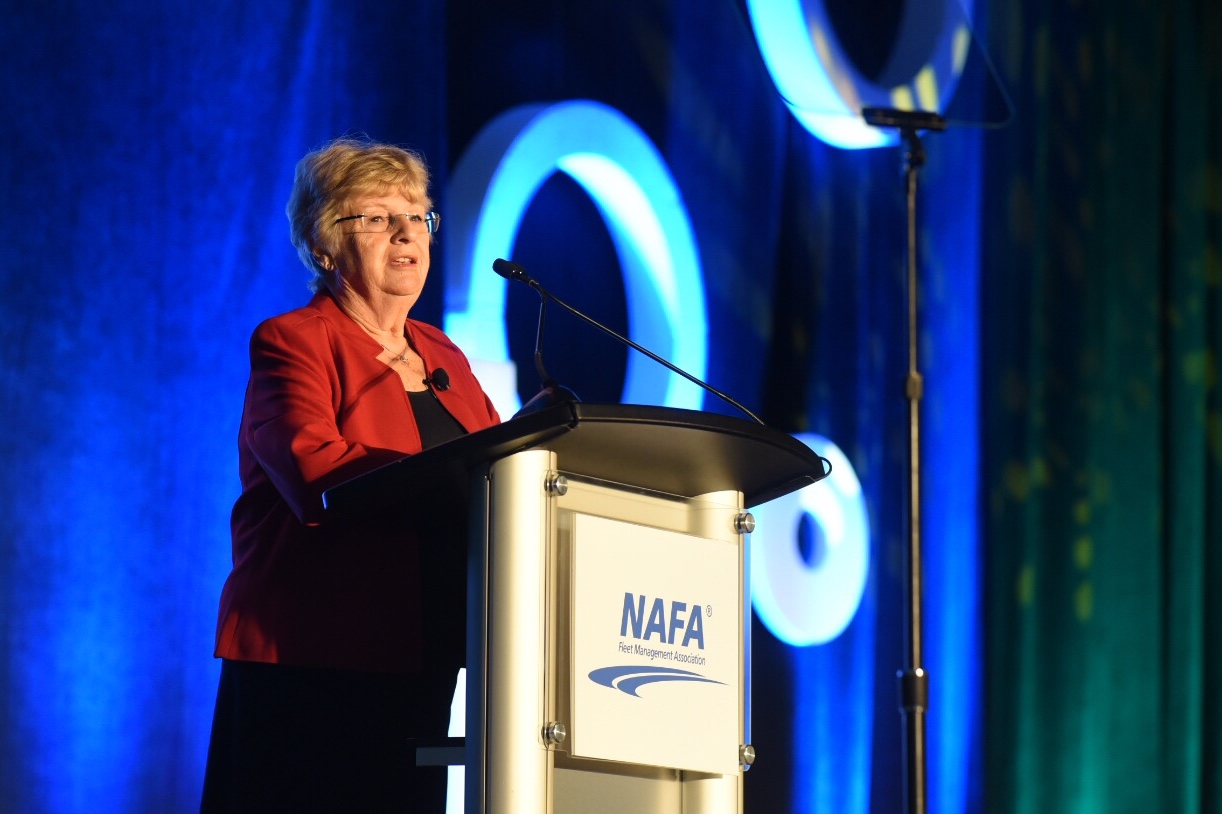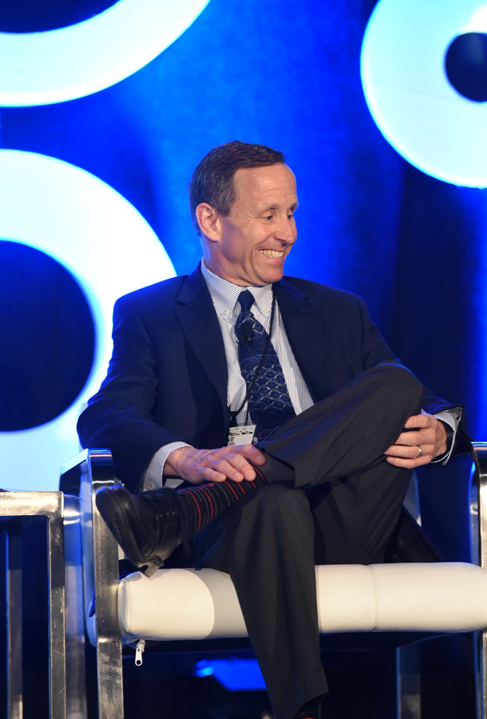Executives from FCA, Ford, GM, and Toyota Discuss the Future of the Auto Industry and Fleet
![]() Print this Article | Send to Colleague
Print this Article | Send to Colleague

Janice Sutton
The presentation on April 26, How OEMs are Addressing Mobility and the Future of Fleet, brought the unique perspectives of panelists Michele Bartlett, Ford; Frank Dankovich, Fiat Chrysler Automobiles; Dave Depew, Toyota Motor North America; and Ed Peper, General Motors Fleet; to I&E attendees. Moderator Janice Sutton, CEO and Editor in Chief of Fleet Management Weekly, posed intriguing questions that fleet professionals submitted and sought answers to.
Michele Bartlett and Frank Dankovich
Sutton began the presentation by tackling head-on what she referred to as "the elephant in the room" - mobility - and what it means to automakers.
Bartlett believes that mobility is, in its essential form, an evolution of technology, combining greater fuel efficiency, connectivity, driver safety on the road, durability, and more in the greater goal of keeping fleets on the road and productive.
Dankovich suggested that the pace of change that has been witnessed up to now is really just the beginning, and within 20 years, automobiles and the industry in total will experience even greater shifts.
What does all that mean for today’s fleet manager? Can he or she implement these mobility solutions now or do they need to wait a few years? The answer is that fleet professionals are already leveraging these seismic changes, from creating mobility portfolios that include all manner of vehicle types, powertrains, and levels of utility; to garnering valuable information from vehicles to shape work processes.
Dankovich said that fleet managers presently have the ability to access "big data" and benchmark the productivity of vehicles, and those who drive them, like never before.

Dave Depew
Peper stated that he is a strong advocate for the collection of the data that can be attained from vehicles, even today. He noted that the ability to monitor and adapt for trips, knowing about excessive idling, and discovering inefficient driving behaviors, constitute a major return on investment for fleets.
All the representatives agreed that data protection is imperative because, as these vehicles advance, the potential for problems can be severe. Therefore, each company is committed to developing and maintaining the systems which will handle the data responsibly.

Ed Peper
Manufacturers will also see quantum shifts in what they specifically do as many OEMs shift to mobility-as-a-service (MaaS) models. Depew discussed the recent unveiling of Toyota's e-Palette Alliance, combining the automaker's e-Palette -- an automated, electric, flexible vehicle concept -- with a suite of software solutions, all of which is customizable for different levels of utility. Launch partners include Amazon, DiDi, Mazda, Pizza Hut, and Uber.
Peper touted General Motors' carsharing service Maven, which is going head-to-head with platforms such as Lyft and Uber, yet also has the established backing of GM. He said that the company saw such a business model as a major shift in the industry, and that GM recognized that rather than fight the future, it was imperative for the company to be a part of it, and use its history to provide a better version of it.
All the representatives noted that the upward trend of crossover vehicles in the fleet marketplace will only continue, and Bartlett added that Ford is going full-force toward this direction.
NAFA thanks these fleet executives for taking the time to share their perspectives with us.
